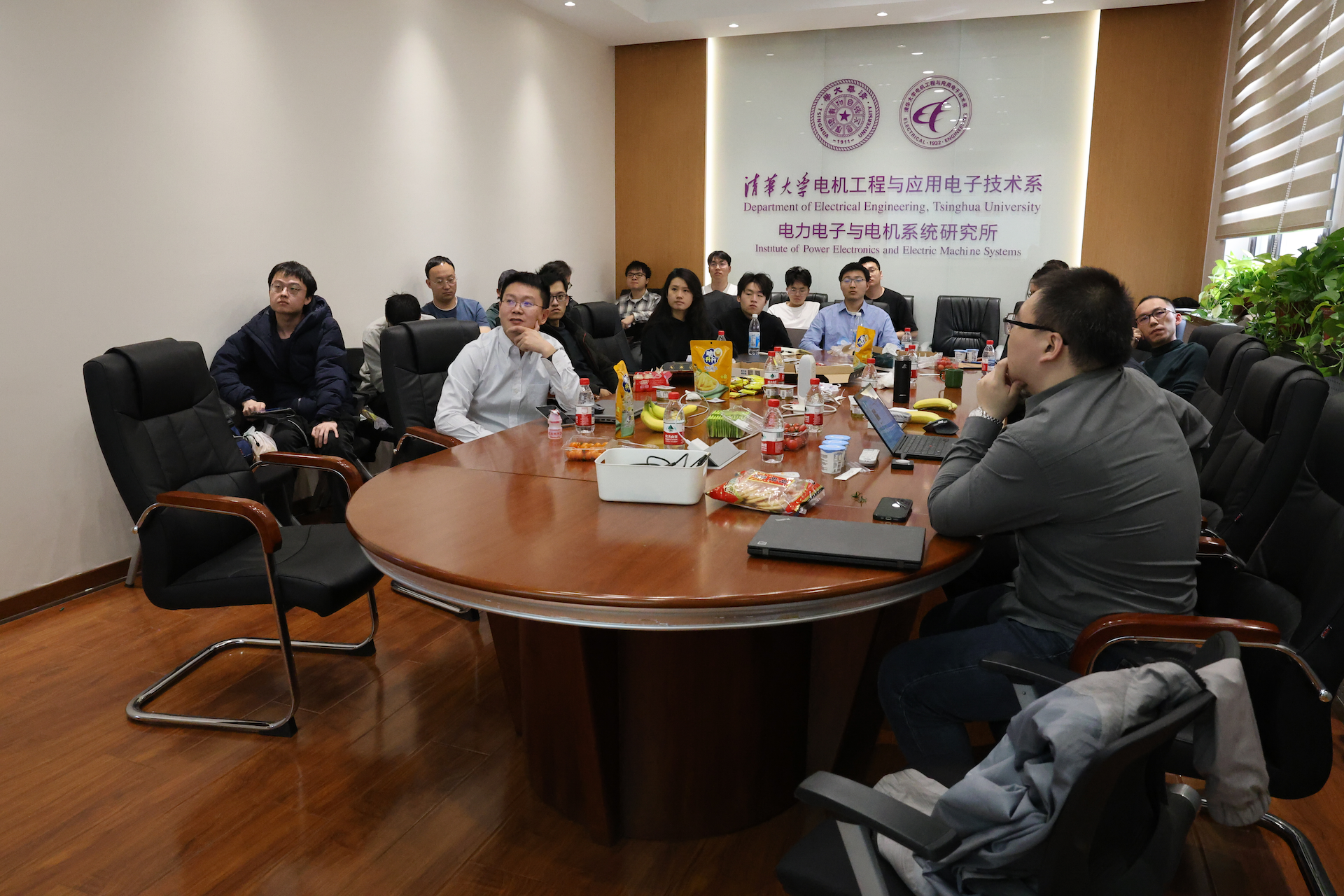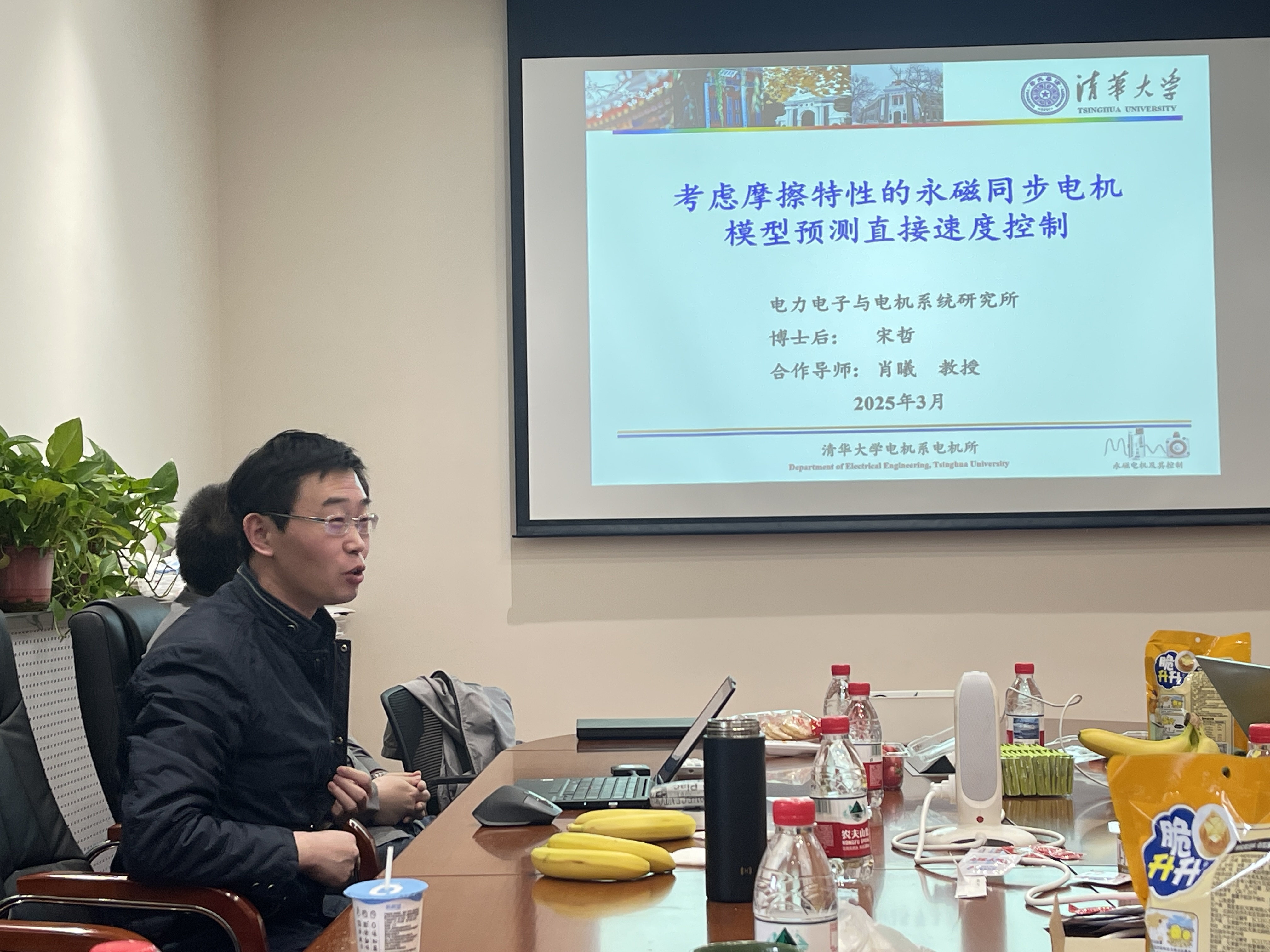To strengthen academic exchanges between postdoctoral researchers, faculty, and graduate students, and to help build a high-quality postdoctoral team, the Party Branch of the Department of Electrical Engineering and Applied Electronics (EEA) organized a series of "Postdoctoral Academic Salons" at the Institute of Power Electronics and Electric Machine Systems. The third session took place on March 13 at the Room 2-308 in the West Main Building. This academic salon invited two postdoctoral researchers, Ren Yifu and Song Zhe, to give academic reports. More than 20 postdoctoral researchers and graduate students participated in the discussion. The meeting was chaired by Wang Kui, Party Branch Secretary and Deputy Director of the Institute.

Intelligent fault diagnosis incorporates emerging technologies such as artificial intelligence and big data into the fault diagnosis process, enhancing diagnostic performance. As a key outcome of industrial digital transformation, intelligent fault diagnosis has gained widespread attention since its inception. Large-scale, well-balanced training data is a prerequisite for reliably modeling intelligent fault diagnosis. However, due to complex operating conditions and unstable monitoring environments, comprehensive fault samples are often unavailable, leading to the common issue of small sample sizes in electrical equipment fault diagnosis. This has become a bottleneck in the development of intelligent fault diagnosis for electrical equipment. Dr. Ren Yifu's report, titled “Research on Sample Transfer and Augmentation Methods for Intelligent Fault Diagnosis of Electrical Equipment”, focused on methods for enhancing small samples to achieve high diagnostic accuracy and strong generalization capabilities. His research showed excellent results in improving diagnostic models.

Song Zhe's Report, titled “Direct Speed Control with Model Predictive Control Considering Friction Characteristics for Permanent Magnet Synchronous Motors”, presented a model predictive direct speed control method for permanent magnet synchronous motors (PMSM). The presentation highlighted the impact of motor parameters and friction characteristics on speed control performance. A robust predictive control technology was developed to address the time-varying nature of motor parameters. Dr. Song also introduced an accurate friction model and control method, which effectively improves the dynamic characteristics and parameter robustness of the system.

Since the fall semester of 2024, the Institute of Power Electronics and Electric Machine Systems has hosted three postdoctoral academic salons, which have significantly promoted interaction and communication between postdoctoral researchers and faculty members. These events have broadened academic perspectives, stimulated innovative thinking, and received considerable attention. Moving forward, the Institute plans to invite more postdoctoral researchers from both within and outside the department to discuss academic challenges, share research achievements, and further develop and improve the postdoctoral academic exchange platform, creating broader space for academic cooperation and innovative research.

















 News & Events
News & Events